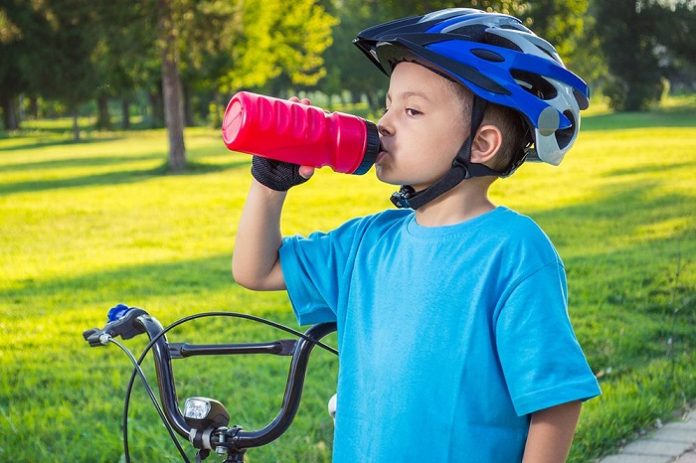Proper hydration is essential for children’s overall health and well-being. Water plays a vital role in various bodily functions, including temperature regulation, digestion, nutrient absorption, and waste elimination. As children are more susceptible to dehydration due to their higher water requirements and active lifestyles, promoting hydration becomes crucial. This article explores the importance of water for children’s health, discusses the signs and risks of dehydration, provides tips for encouraging hydration, and offers suggestions for making water consumption enjoyable and appealing to children.
The Role of Water in Children’s Health
- Optimal Physical Performance: Staying adequately hydrated is key for children to maintain optimal physical performance during physical activities, sports, and play. Water helps regulate body temperature, lubricate joints, and transport nutrients to muscles, enhancing overall performance.
- Cognitive Function and Concentration: Proper hydration supports cognitive function and helps children stay focused and alert. Even mild dehydration can impair concentration, memory, and cognitive abilities, affecting academic performance and daily activities.
- Digestive Health: Water is essential for maintaining proper digestion and preventing constipation in children. It helps soften stools, supports healthy bowel movements, and aids in the absorption of nutrients from food.
- Temperature Regulation: Children are more prone to heat-related illnesses due to their smaller bodies and higher metabolic rates. Drinking enough water helps regulate body temperature and prevents heat exhaustion or heatstroke.
Recognizing Dehydration and its Risks
Dehydration occurs when the body loses more fluids than it takes in, leading to an imbalance in electrolytes and impairing bodily functions. It is crucial to recognize the signs of dehydration in children, which may include increased thirst, dry lips and mouth, decreased urine output, fatigue, dizziness, and irritability.
Dehydration poses several risks to children’s health:
- Impaired Physical Performance: Insufficient hydration can affect a child’s endurance, strength, and overall physical performance, compromising their ability to engage in activities and sports.
- Heat-Related Illnesses: Inadequate fluid intake increases the risk of heat exhaustion and heatstroke, especially during hot weather or intense physical exertion.
- Concentration and Cognitive Function: Dehydration can negatively impact a child’s ability to concentrate, affecting their academic performance and cognitive abilities.
Encouraging Hydration in Children
- Lead by Example: Be a role model by drinking water regularly and demonstrating the importance of hydration to your child. Make water your beverage of choice during meals and throughout the day.
- Make Water Readily Available: Ensure that clean and safe drinking water is easily accessible to your child at home, school, and during outdoor activities. Provide a reusable water bottle that your child can carry to encourage regular hydration.
- Create Fun Drinking Habits: Make drinking water enjoyable by infusing it with fruits, such as lemon, berries, or cucumber, to add natural flavors. Use colorful and fun water bottles or cups to make it visually appealing for children.
- Set Reminders: Children may get caught up in activities and forget to drink water. Set reminders or incorporate hydration breaks during their daily routine, especially during physical activities or outdoor play.
- Incorporate Water-Rich Foods: Encourage consumption of water-rich foods such as fruits (watermelon, oranges, grapes), vegetables (cucumbers, celery, tomatoes), and soups. These foods not only provide hydration but also offer valuable nutrients.
- Make it Fun: Introduce creative ways to make drinking water more exciting. Use colorful ice cubes, offer water-based popsicles, or create a reward system for reaching hydration goals.
- Hydration with Meals: Encourage your child to drink water before, during, and after meals. This helps with digestion and ensures adequate hydration throughout the day.
- Education on Hydration: Teach your child about the importance of water for their health. Explain the benefits of hydration and the risks associated with dehydration, empowering them to make informed choices.
- Hydration in School: Advocate for access to water fountains or bottle-filling stations in schools. Encourage teachers to incorporate regular water breaks during class time to promote hydration.
- Monitor Hydration during Physical Activity: During sports or physical activities, ensure your child drinks water before, during, and after the activity to prevent dehydration. Encourage coaches and instructors to prioritize hydration and provide regular water breaks.
Hydration During the School Day: Strategies for Encouraging Water Consumption in the Classroom
Encouraging children to stay hydrated during school hours is essential for their overall well-being and academic performance. Teachers and schools can play a vital role in promoting water intake by implementing strategies that make drinking water convenient and appealing.
Also read: Children Health Insurance Program And How It Works?
This can include providing regular water breaks, allowing water bottles in the classroom, and ensuring access to water fountains or bottle-filling stations. Educating teachers and students about the benefits of hydration and integrating it into the curriculum can also reinforce the importance of staying hydrated throughout the school day.
The Link Between Hydration and Academic Performance: How Water Intake Impacts Cognitive Function
Research has shown that proper hydration is closely tied to cognitive function and academic performance in children. Dehydration can lead to decreased attention span, poor memory retention, and reduced cognitive abilities, negatively impacting learning outcomes. By maintaining proper hydration, children can optimize their cognitive function, stay focused, and enhance their academic performance. Educating parents, teachers, and students about this link can highlight the importance of drinking water regularly and reinforce the message that staying hydrated supports both physical and mental well-being.
Hydration and Physical Activity: Ensuring Proper Fluid Balance for Active Children
When children engage in physical activity or sports, their bodies lose fluids through sweat, increasing the need for hydration. Proper fluid balance is crucial to prevent dehydration and maintain performance and safety during exercise. Parents, coaches, and instructors should emphasize the importance of pre-hydration, drinking water during breaks, and rehydrating after physical activity. Encouraging children to listen to their bodies and drink water when they feel thirsty is also important, as thirst is an early sign of dehydration. By promoting hydration as an integral part of physical activity, we can help children understand the relationship between water intake and their performance, ensuring they stay properly hydrated during exercise.
Tips for Managing Hydration During Hot Weather and Outdoor Activities
Hot weather and outdoor activities pose additional challenges for maintaining proper hydration in children. Increased heat and sweat rates can lead to rapid fluid loss, making it crucial to pay close attention to hydration levels. Parents and caregivers should encourage children to drink water before heading outdoors, provide shaded rest areas for breaks, and ensure access to cool drinking water. Offering water-rich snacks like watermelon or cucumber can also contribute to hydration. Additionally, educating children about the signs of heat-related illnesses, such as heat exhaustion and heatstroke, can help them recognize when they need to take a break, seek shade, and rehydrate. By implementing these tips, parents can help their children enjoy outdoor activities safely while maintaining adequate hydration. Playing outdoor activities is important for children’s overall health. Renting an inflatable, such as party rentals Hilton Head, in the summer can help make it more fun and engaging.
Promoting hydration in children is crucial for their overall health and well-being. Adequate hydration supports physical performance, cognitive function, digestion, and temperature regulation. Recognizing the signs of dehydration and understanding its risks is essential for parents and caregivers. By leading by example, making water easily accessible and enjoyable, incorporating water-rich foods, setting reminders, and educating children about the importance of hydration, we can encourage regular water consumption. By prioritizing hydration in schools, monitoring hydration during physical activities, and creating a supportive environment, we can ensure children maintain proper hydration levels. By instilling healthy hydration habits, we set children on a path towards optimal health and well-being.







